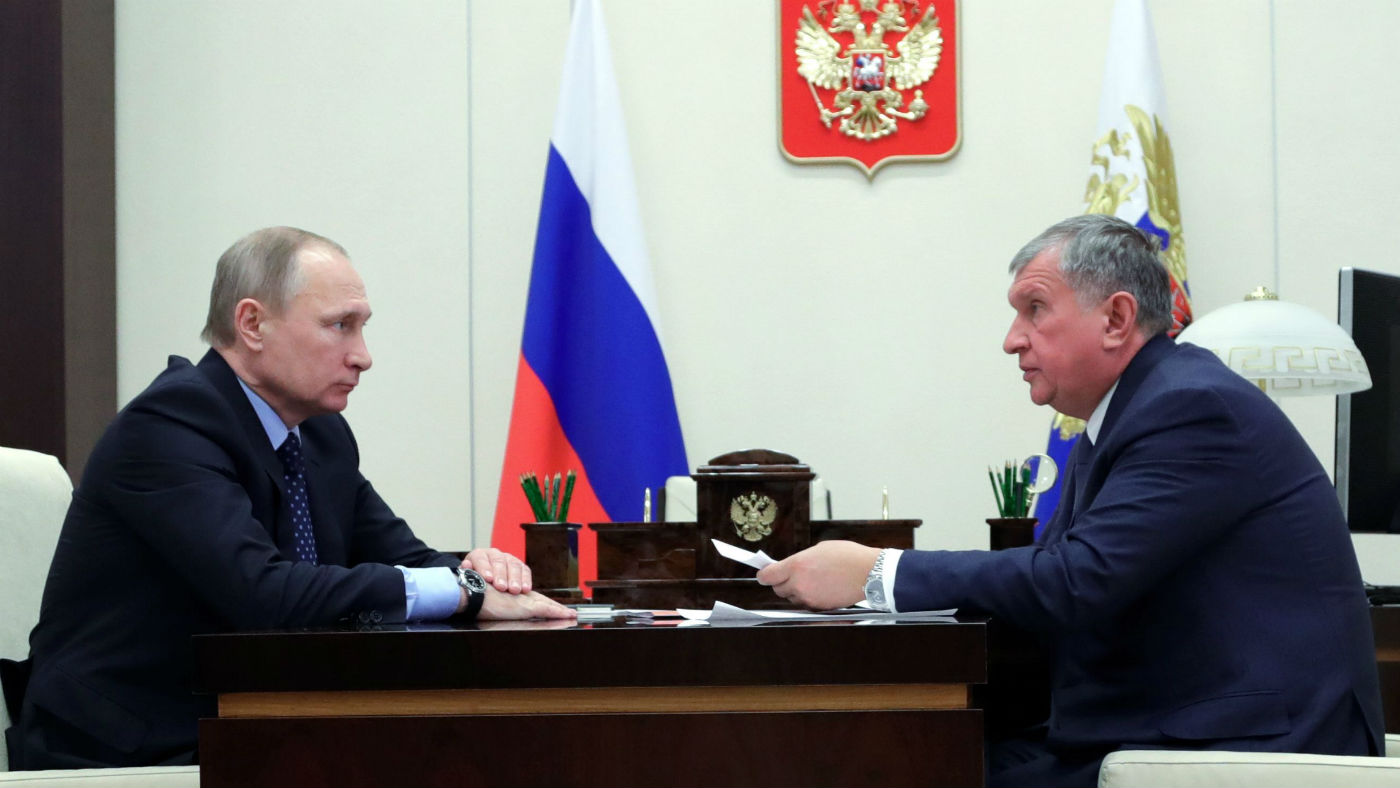Oil bribery trial divides Russia
Case of former economic minister and CEO of Rosneft splits ruling elite

A free daily email with the biggest news stories of the day – and the best features from TheWeek.com
You are now subscribed
Your newsletter sign-up was successful
A trial involving Russia’s former economy minister and the head of state-owned oil company Rosneft has split the country’s ruling elite and prompted difficult questions for the Kremlin.
The story has it all, says The Independent: “Exotic locations, alleged bungs, secret recordings and a basket of sausages.”
The case centres on a meeting held in Goa, India, in October 2016. Alexey Ulyukayev, then economy minister, allegedly pressured Igor Sechin, CEO of Russia’s state-run oil company and close confidant of Russian President Vladimir Putin, into agreeing to pay a $2m bung so that Ulyukayev would drop his opposition to Rosneft’s majority purchase of rival oil company Bashneft.
The Week
Escape your echo chamber. Get the facts behind the news, plus analysis from multiple perspectives.

Sign up for The Week's Free Newsletters
From our morning news briefing to a weekly Good News Newsletter, get the best of The Week delivered directly to your inbox.
From our morning news briefing to a weekly Good News Newsletter, get the best of The Week delivered directly to your inbox.
Ulyukayev became the first serving minister since soviet secret police chief Lavrenty Beria in 1953 to be arrested when he was caught in an elaborate bribery sting, allegedly orchestrated by Sechin.
The Bashneft deal “had been presented as a watermark test for Russian privatisation but resulted in a tug-of-war within the government”, says The Independent.
In a country where senior politicians are rarely brought to trial, the case has split the ruling elite and reignited questions as to the relationship between the Kremlin, business and state-owned industries.
While he has said he was aware of the operation, President Putin has sought to maintain his distance and arbitrate between the liberal free market and protectionist factions within his government.
A free daily email with the biggest news stories of the day – and the best features from TheWeek.com
-
 Crisis in Cuba: a ‘golden opportunity’ for Washington?
Crisis in Cuba: a ‘golden opportunity’ for Washington?Talking Point The Trump administration is applying the pressure, and with Latin America swinging to the right, Havana is becoming more ‘politically isolated’
-
 5 thoroughly redacted cartoons about Pam Bondi protecting predators
5 thoroughly redacted cartoons about Pam Bondi protecting predatorsCartoons Artists take on the real victim, types of protection, and more
-
 Palestine Action and the trouble with defining terrorism
Palestine Action and the trouble with defining terrorismIn the Spotlight The issues with proscribing the group ‘became apparent as soon as the police began putting it into practice’
-
 Epstein files topple law CEO, roil UK government
Epstein files topple law CEO, roil UK governmentSpeed Read Peter Mandelson, Britain’s former ambassador to the US, is caught up in the scandal
-
 Iran and US prepare to meet after skirmishes
Iran and US prepare to meet after skirmishesSpeed Read The incident comes amid heightened tensions in the Middle East
-
 Israel retrieves final hostage’s body from Gaza
Israel retrieves final hostage’s body from GazaSpeed Read The 24-year-old police officer was killed during the initial Hamas attack
-
 China’s Xi targets top general in growing purge
China’s Xi targets top general in growing purgeSpeed Read Zhang Youxia is being investigated over ‘grave violations’ of the law
-
 Panama and Canada are negotiating over a crucial copper mine
Panama and Canada are negotiating over a crucial copper mineIn the Spotlight Panama is set to make a final decision on the mine this summer
-
 How oil tankers have been weaponised
How oil tankers have been weaponisedThe Explainer The seizure of a Russian tanker in the Atlantic last week has drawn attention to the country’s clandestine shipping network
-
 Why Greenland’s natural resources are nearly impossible to mine
Why Greenland’s natural resources are nearly impossible to mineThe Explainer The country’s natural landscape makes the task extremely difficult
-
 Iran cuts internet as protests escalate
Iran cuts internet as protests escalateSpeed Reada Government buildings across the country have been set on fire